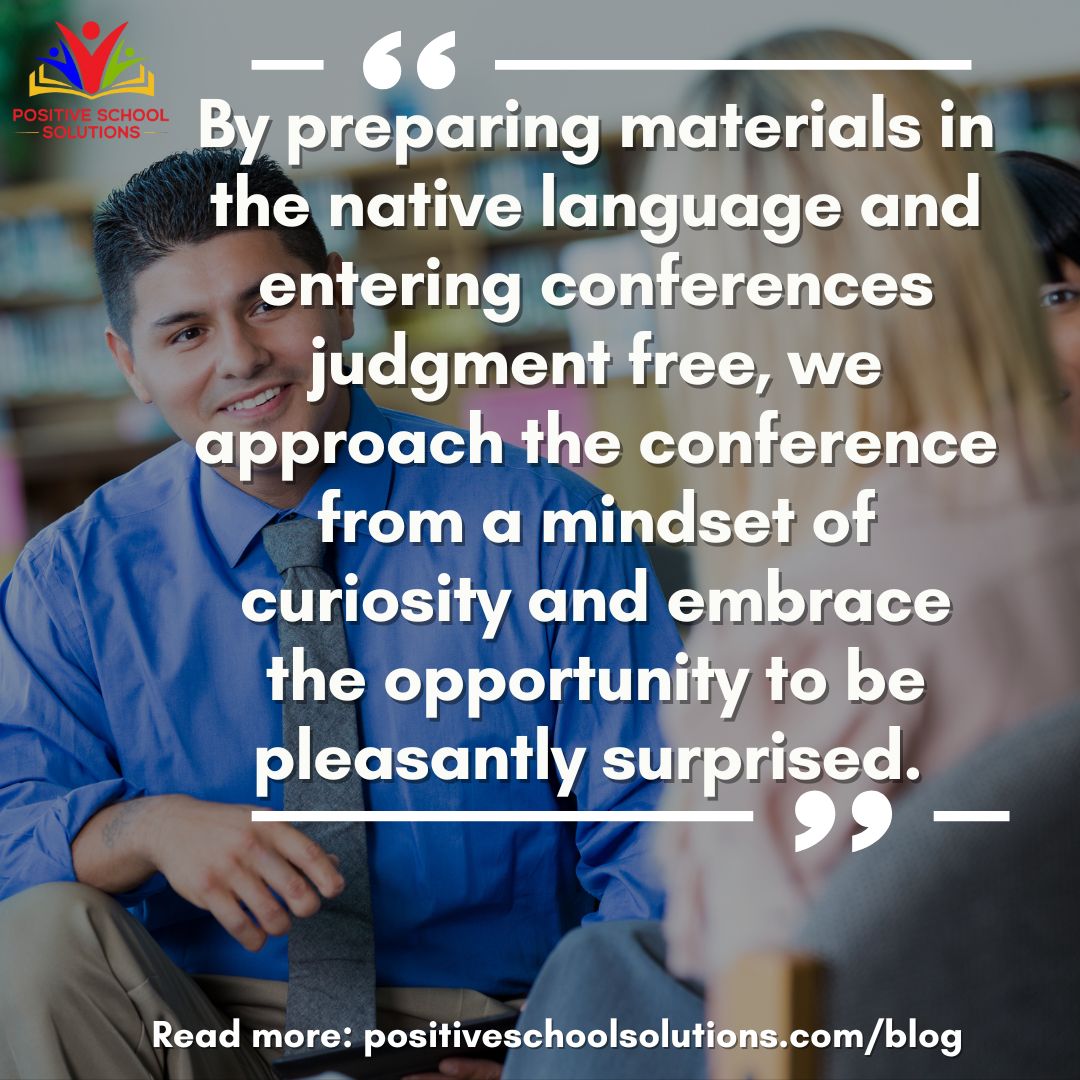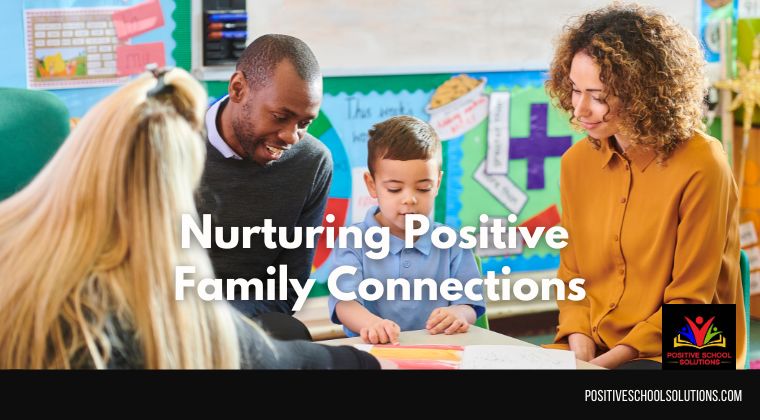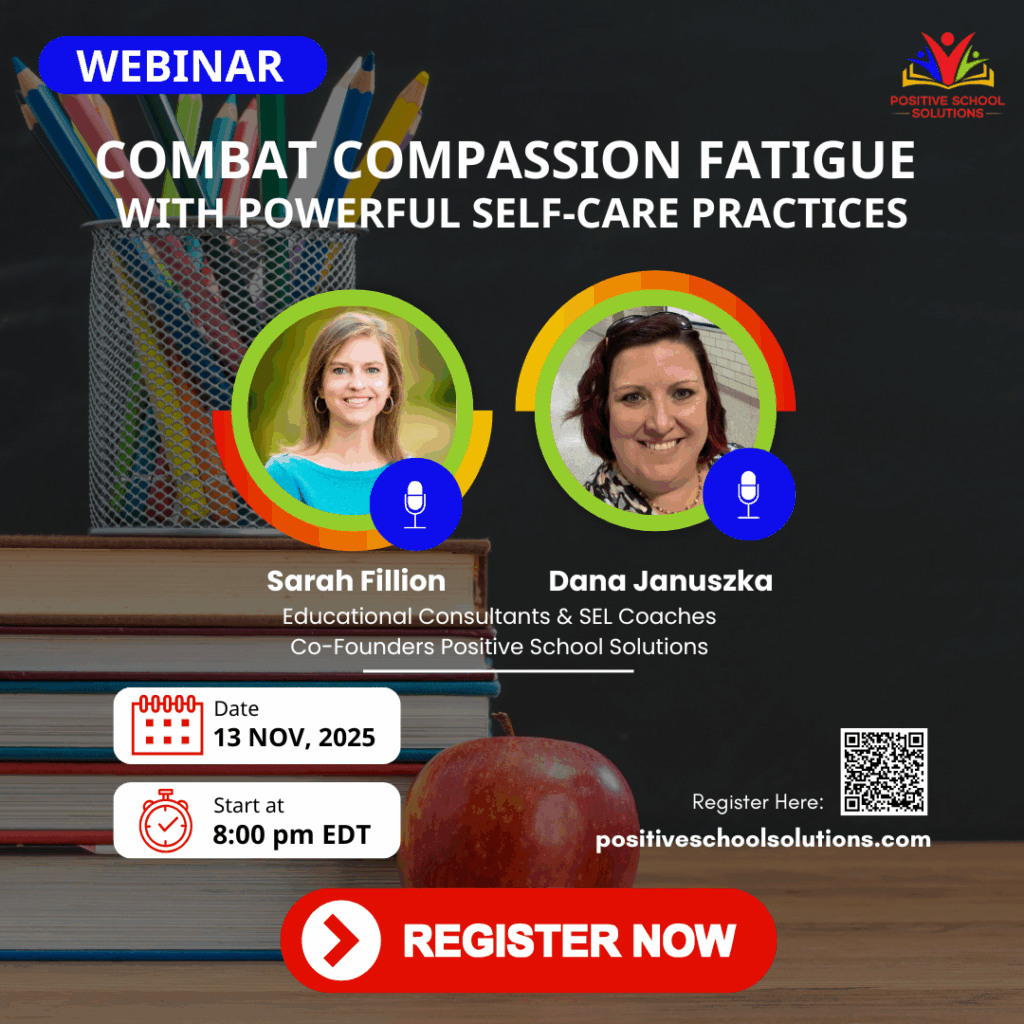 One way we can demonstrate our belief that home plays an equally important role in the academic success of a child, is through ensuring that the caregivers attending the conference are engaged and given opportunities to participate in the conversation. In a nationally conducted 2016 survey, 92 percent of students in kindergarten through second grade, 90 percent of students in third through fifth grade, and 73 percent of middle school students had a caregiver who attended a scheduled teacher conference. Those statistics reinforce the belief that caregivers truly want the best education possible for their children.
One way we can demonstrate our belief that home plays an equally important role in the academic success of a child, is through ensuring that the caregivers attending the conference are engaged and given opportunities to participate in the conversation. In a nationally conducted 2016 survey, 92 percent of students in kindergarten through second grade, 90 percent of students in third through fifth grade, and 73 percent of middle school students had a caregiver who attended a scheduled teacher conference. Those statistics reinforce the belief that caregivers truly want the best education possible for their children.
To make conferences positively impactful for caregivers, there are a few strategies we can employ to increase engagement and leave space for them to be partners in the conversation. As we started writing, we realized we had a lot to say about this critical element to productive conferences, so have broken it down into three separate posts. We’ll share one post each day to help you with strategies that can be embedded into your conference plan and will result in productive and positive outcomes.
First and foremost, we need to ensure that caregivers are able to access the information – both leading up to the conference and the information relayed at the conference.
- Start by making sure that all written communication is translated into the native language of each family. If you are not sure what the native language spoken at home is, send home a questionnaire to acquire that information. Translating materials into the native language spoken at home is a gesture that shows you value their engagement and invites participation. One question you can ask on the conference sign-up sheet is whether they would like an interpreter present to conduct the conference in their native language.
- Is there an interpreter on site at your school? If there is, check the availability/schedule of the interpreter to make sure they can be present for conferences with families that need them. If there is not, ask your administrator how your school can have access to the district interpreter. Aligning the schedules of the interpreter and student’s caregivers is critical to upholding the belief that a strong home-school connection positively impacts academic achievement.
- Do some research about important aspects of the cultures of each family- particularly what beliefs and views might be held regarding education. As you research, it is important that you do so from credible sources, such as this one or this one, and that you avoid stereotyping families before you meet them based on something you read. Conducting research is to prepare you for what you might see, not create expectations of roles you expect caregivers to follow. In addition to researching online, you might consider reaching out to your school or district English Language Learners (ELL) teacher, local university professors, or community members and groups that are working with families (if they are new to the area) or are from the same cultural background.
- One other aspect to consider is the customs around interactions based on different religious or cultural norms. The easiest way to navigate this is to add a question to your conference sign-up sheet that says, “To be respectful of personal, religious, and cultural practices, please let me know any information that will help prepare our time together for success.”
Another tip for engaging caregivers during conferences is to enter the conversation judgment free.
- Being non judgmental means we don’t share our perceptions in a way that diminishes our respect for others in the conversation and that you listen without making assumptions. At this point in the year, you might have heard a story or two (or many!) or even seen a caregiver passing behind a student on a Zoom meeting that may have led you to create a story about the caregiver. This may be at odds with your own opinions, for example if a caregiver wears apparel during pick-up that supports an opposing political viewpoint to your own. Or, you may feel like the caregiver could be doing something different that would benefit the student even more. Going into conferences, it is important that you set aside differences and instead focus on what you have in common – wanting the child to have the best learning experience and achieve academically, socially, and emotionally. Keeping this goal as the foundation for the conference, you can focus on the child, their successes and next steps, and maintain a positive mindset around the caregivers goals in supporting the child.
Both of these tips are ways to plan for engagement with caregivers during conferences. By preparing materials in the native language and entering conferences judgment free, we approach the conference from a mindset of curiosity and embrace the opportunity to be pleasantly surprised.
The planning and preparation is most important, and with these tips, you’ll be ready to engage with, and learn from, caregivers. In tomorrow’s post, we’ll explore tips on creating an engaging atmosphere during the conference.
For more on building relationships with families, check out our On-Demand Course: Nurturing Positive Family Connections
Written by Sarah Fillion & Dana Januszka for Positive School Solutions 2020


